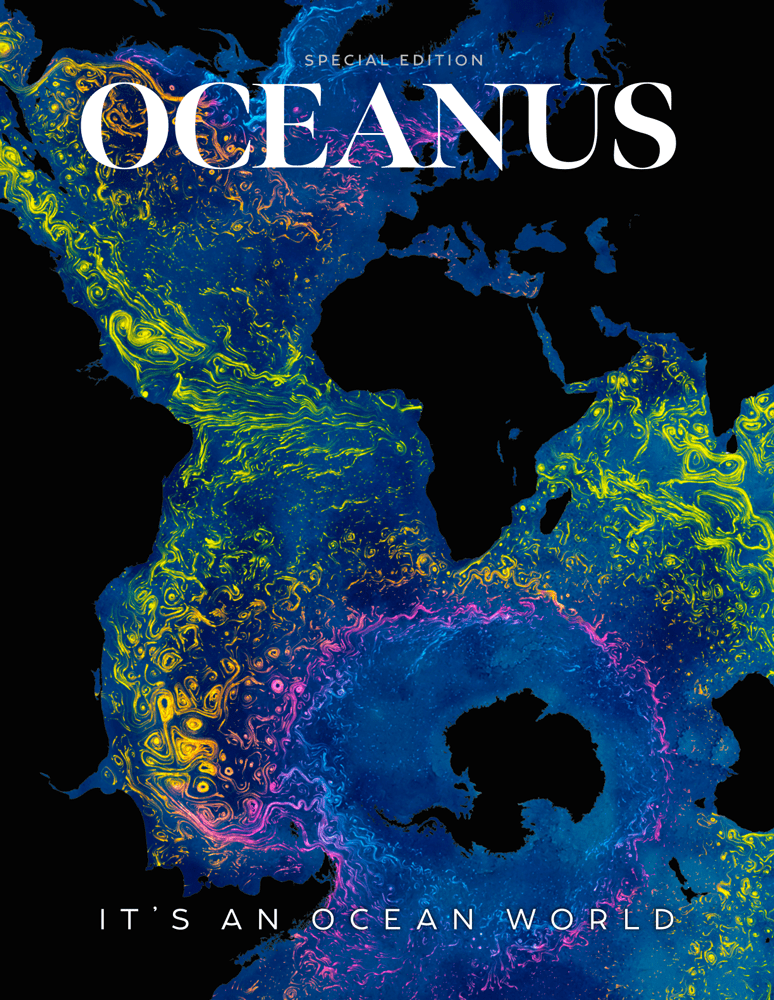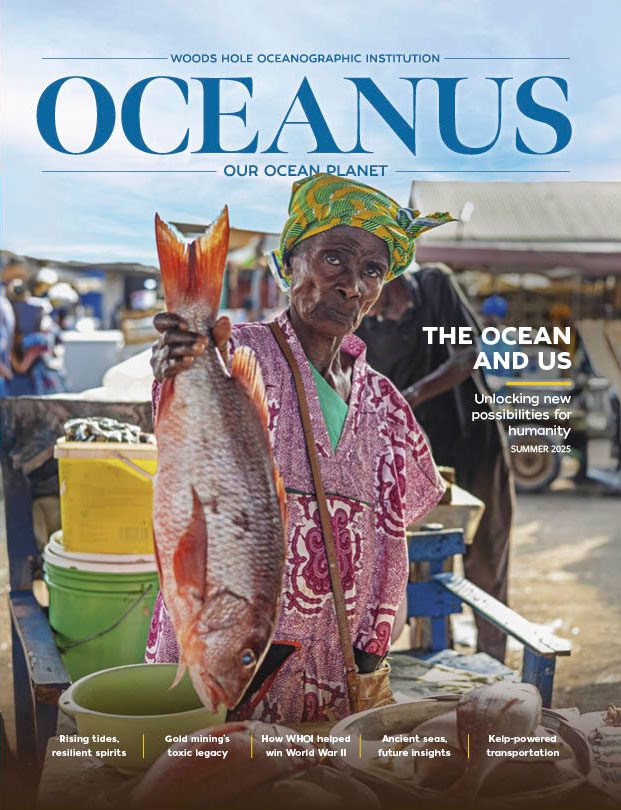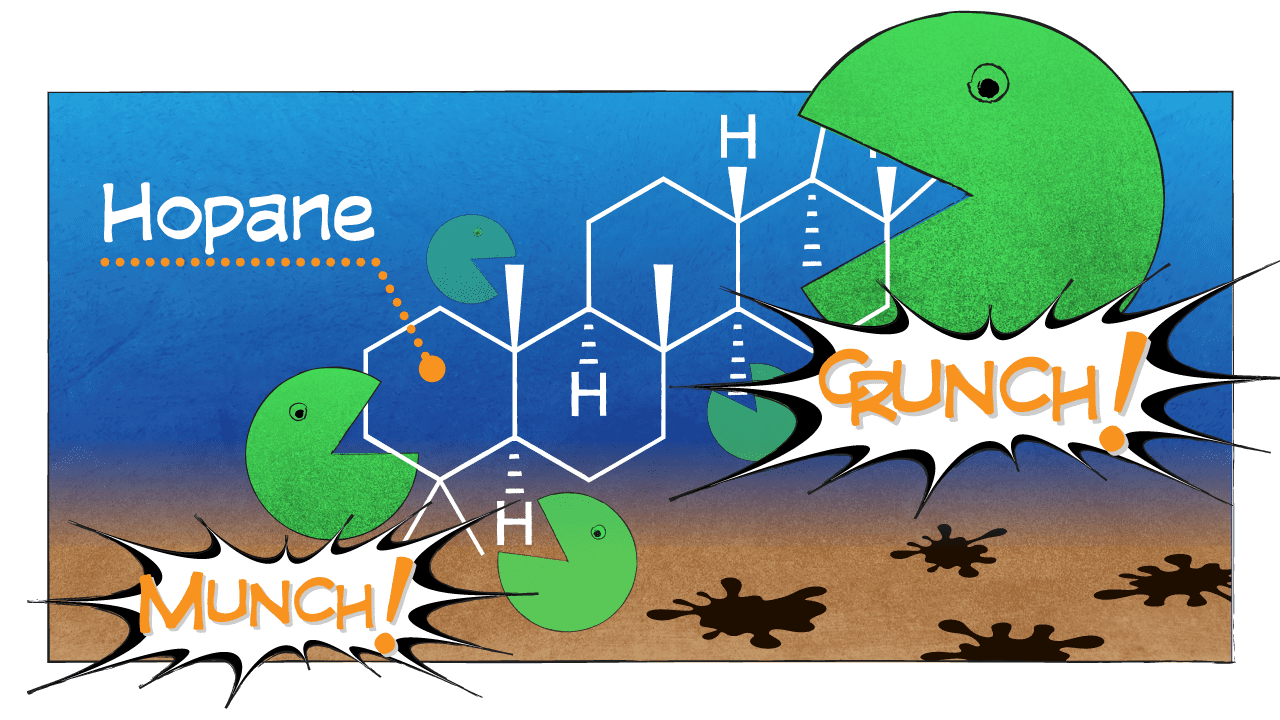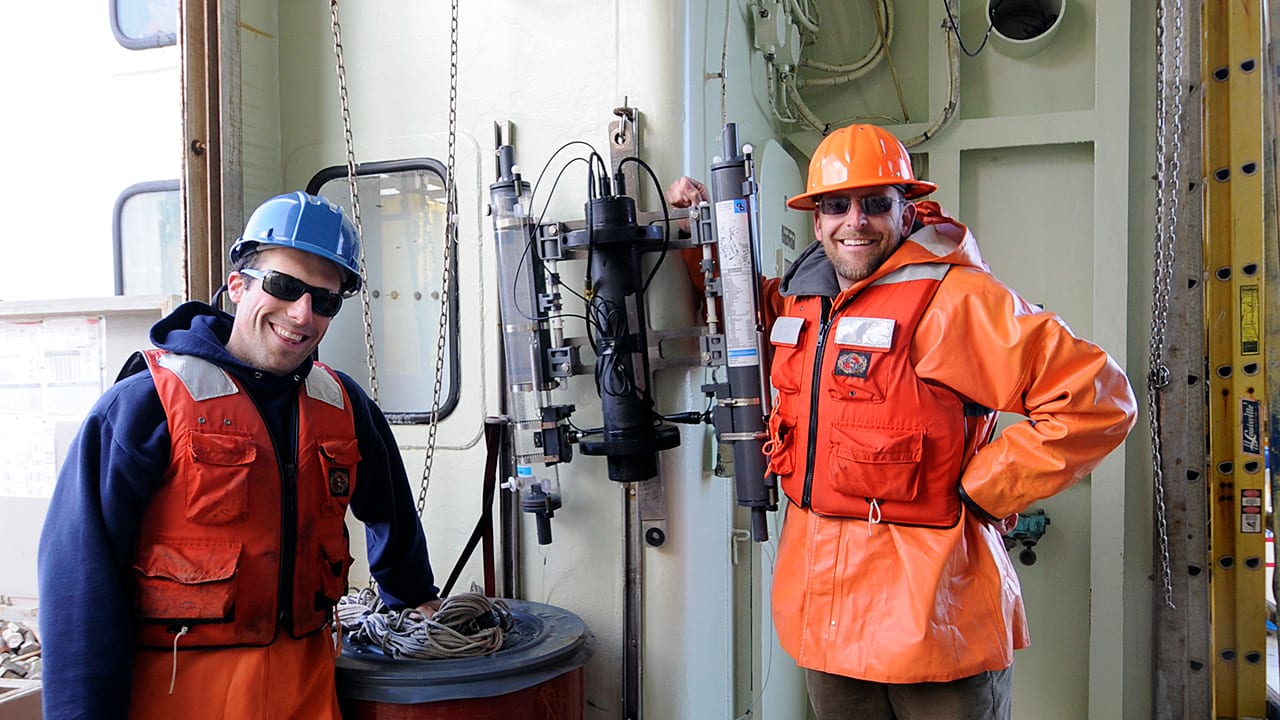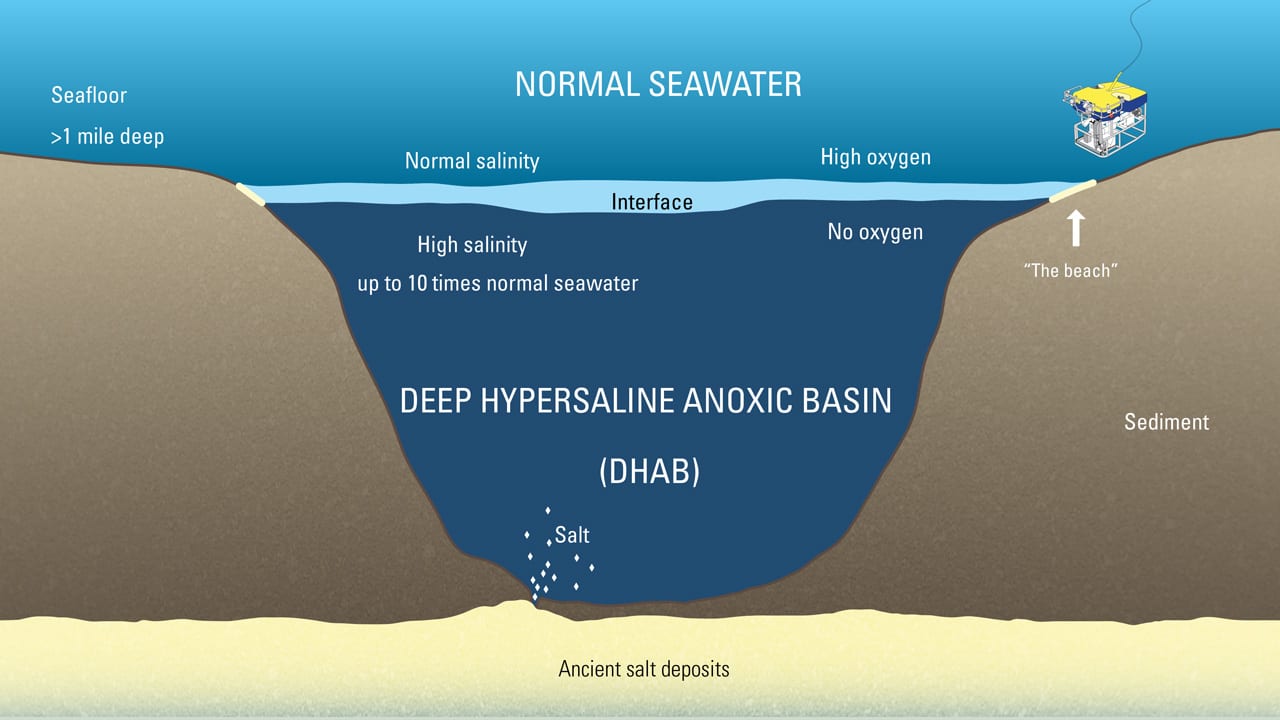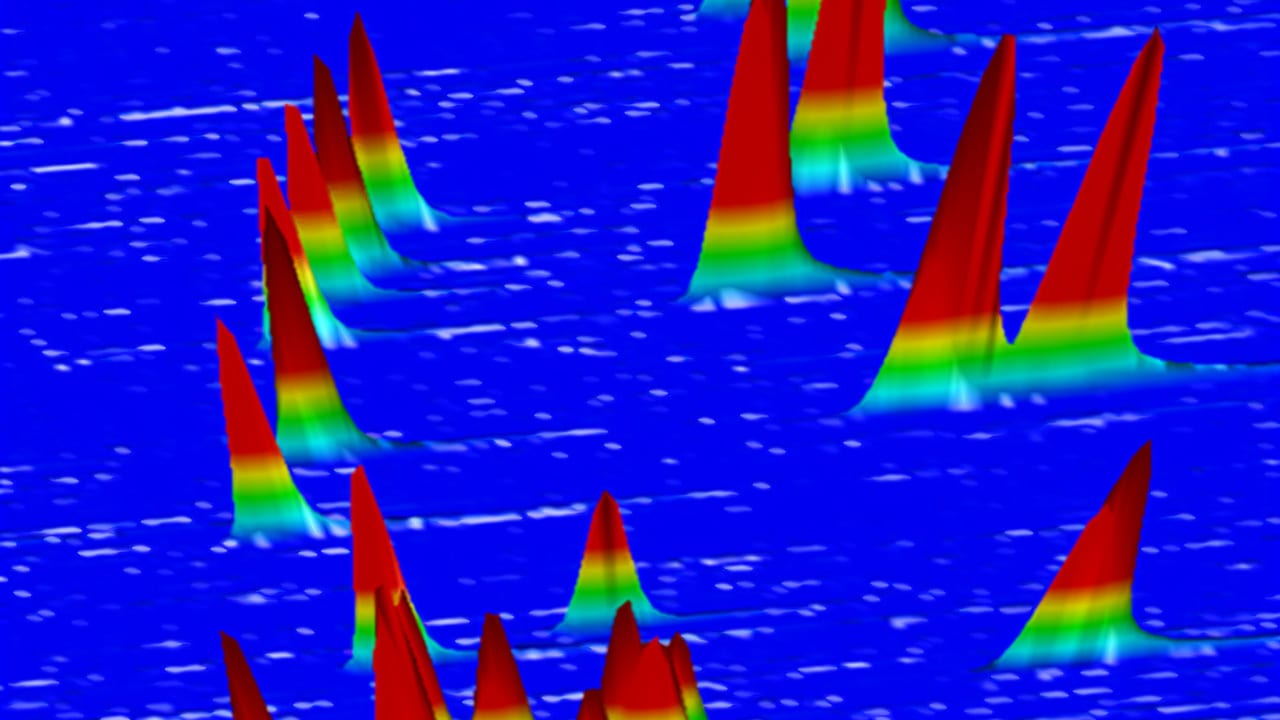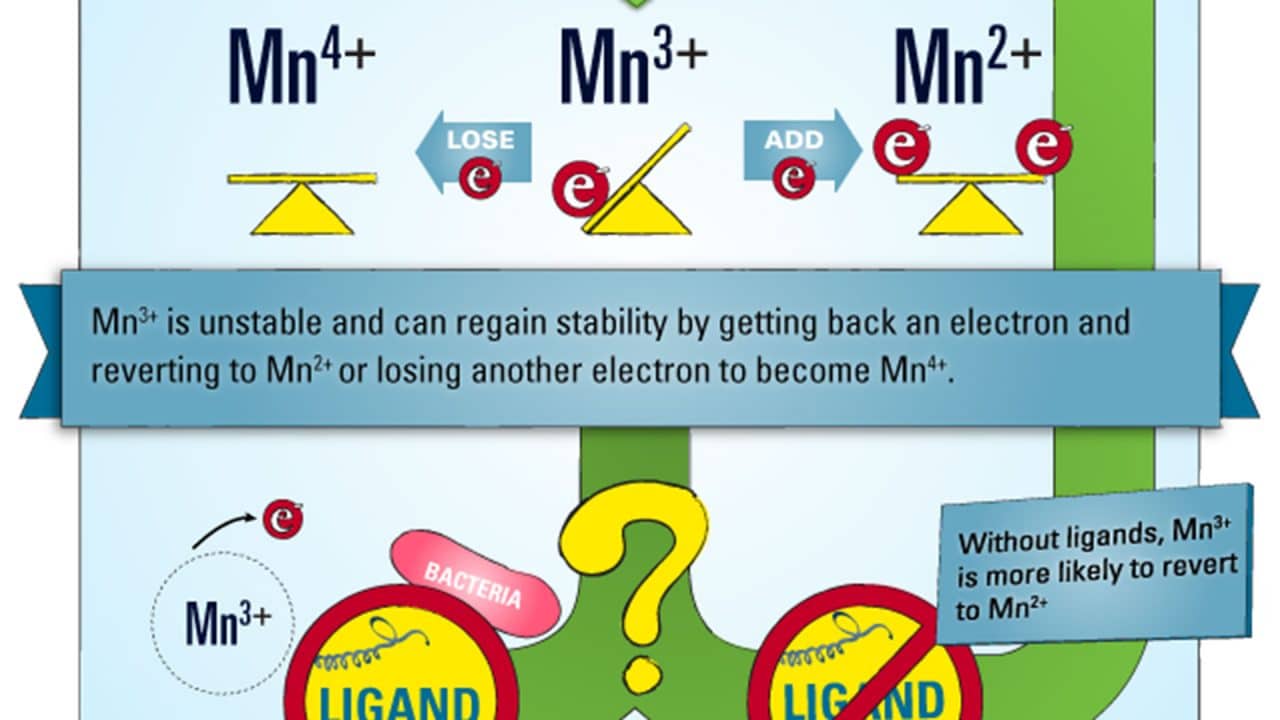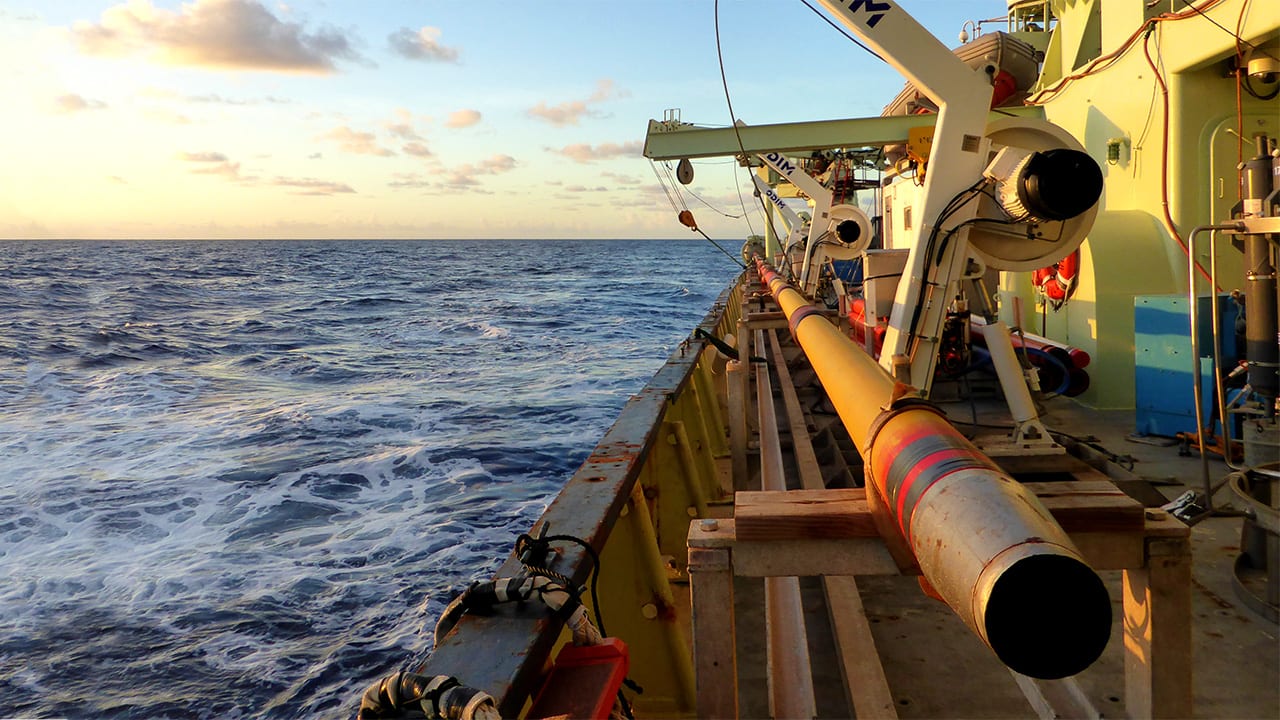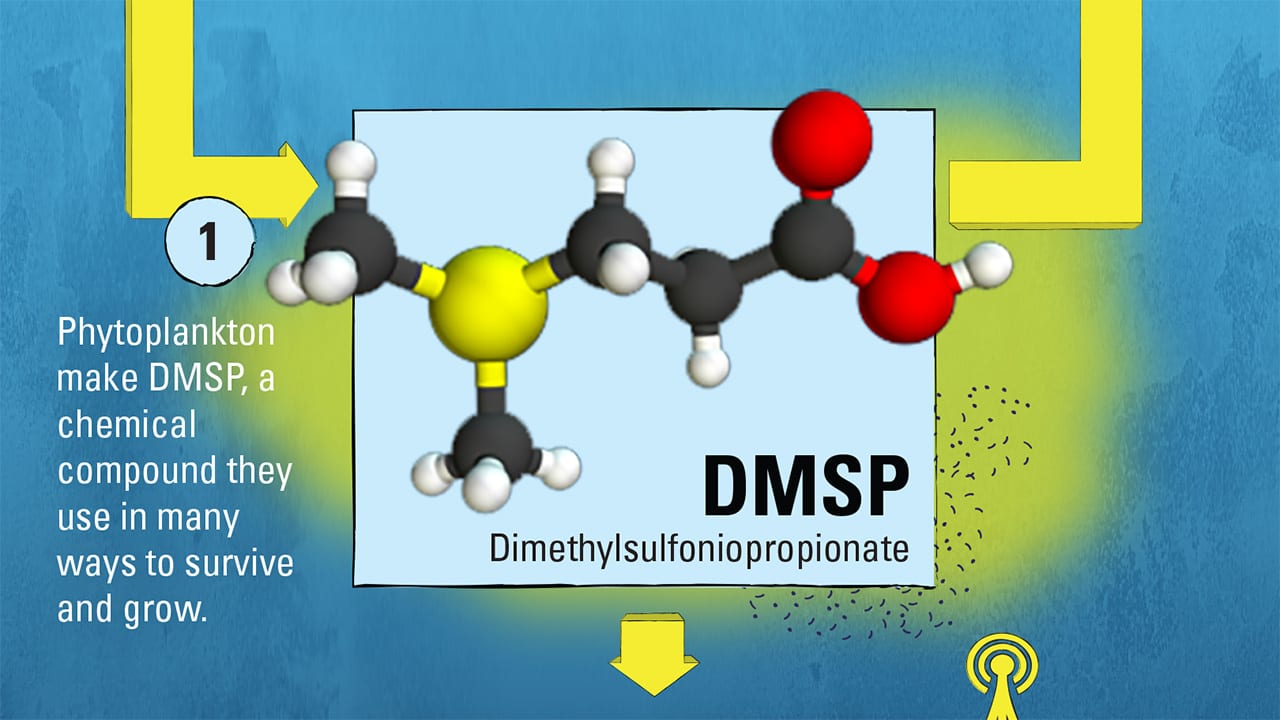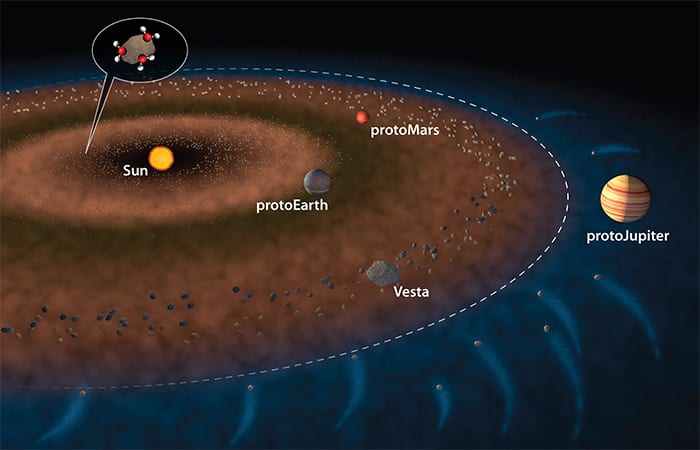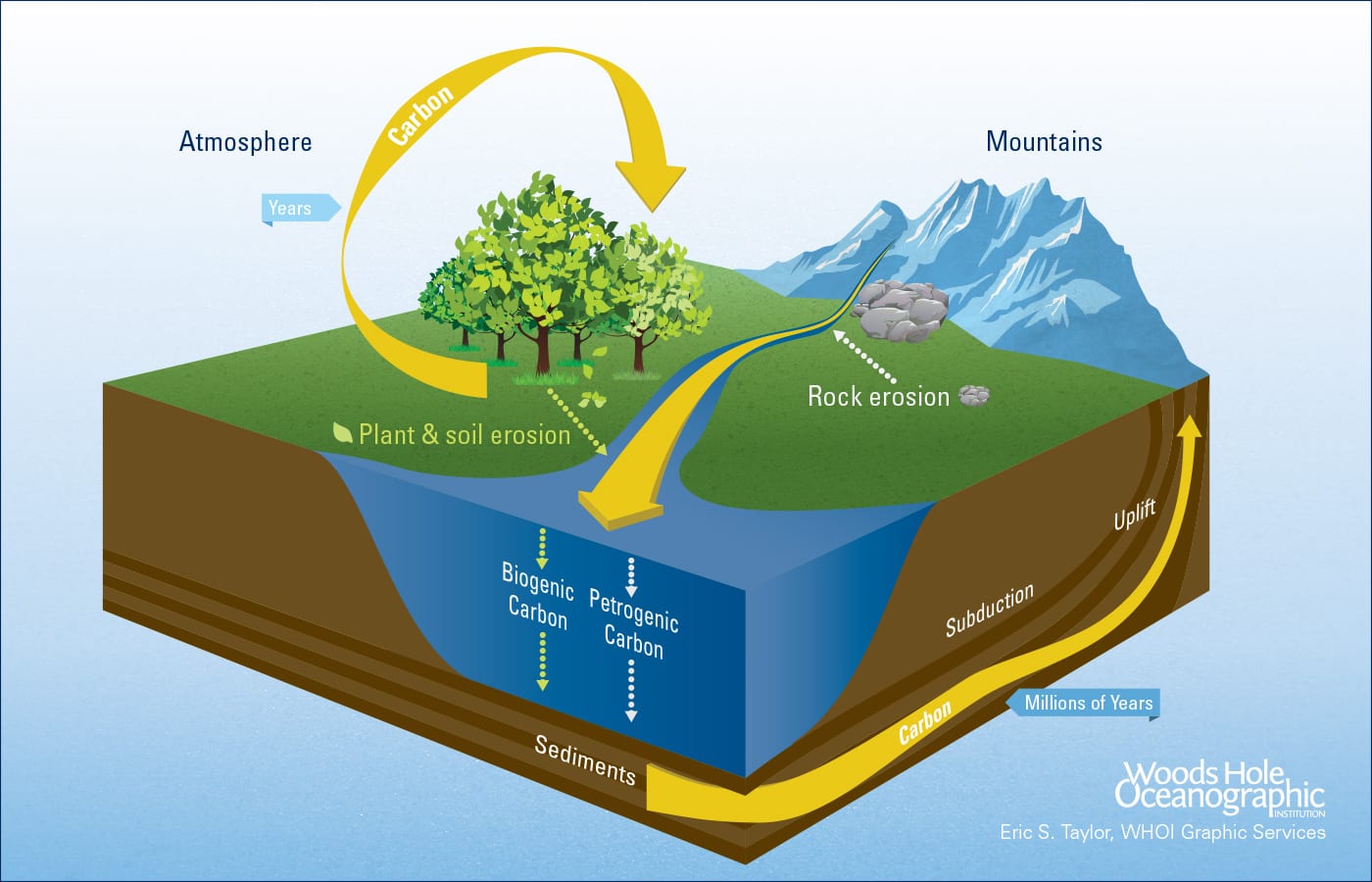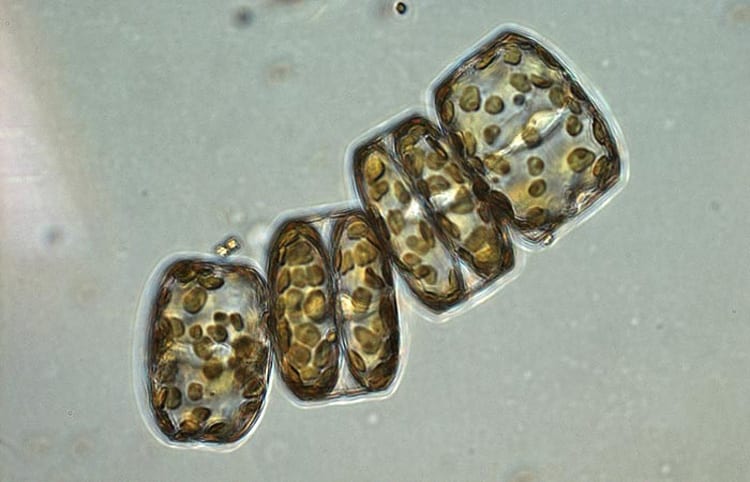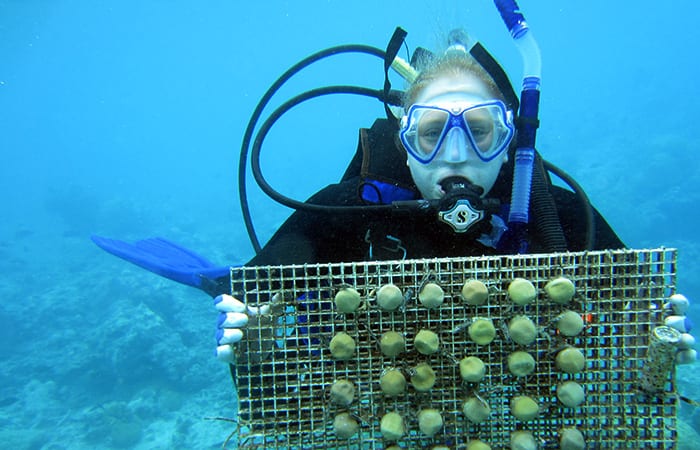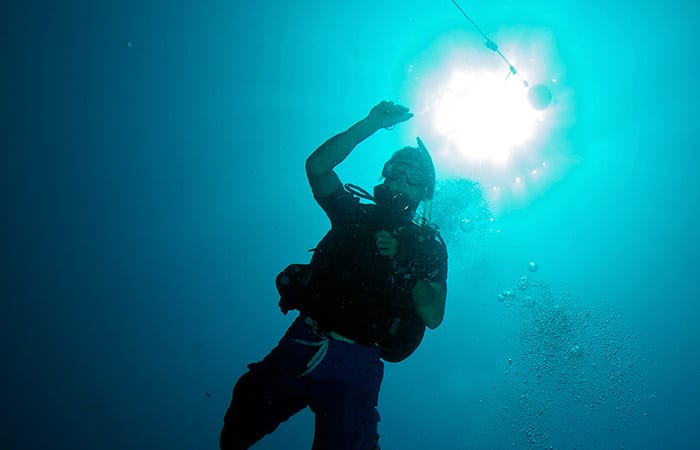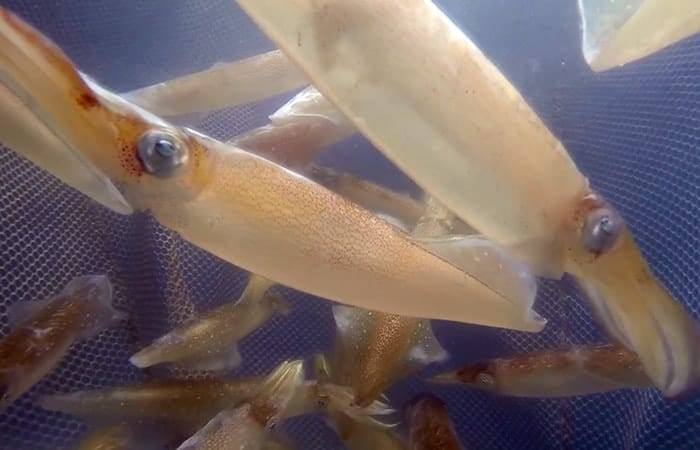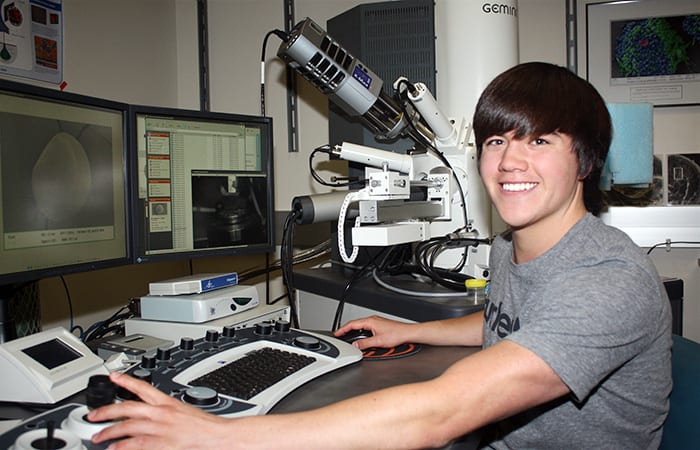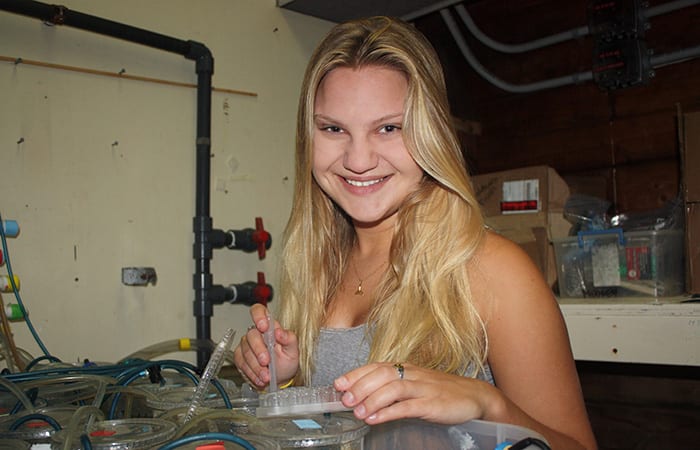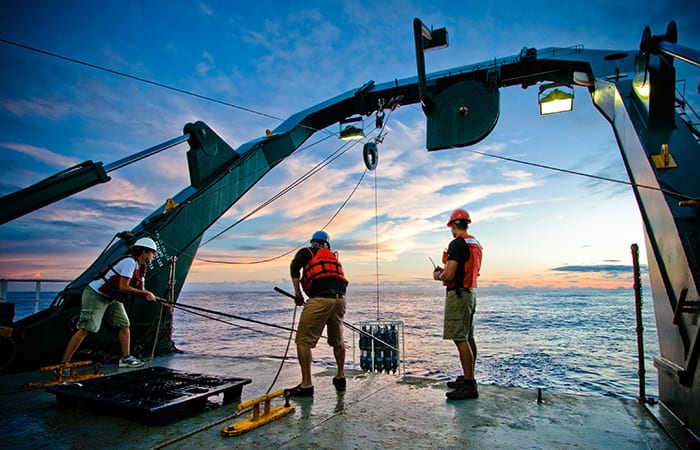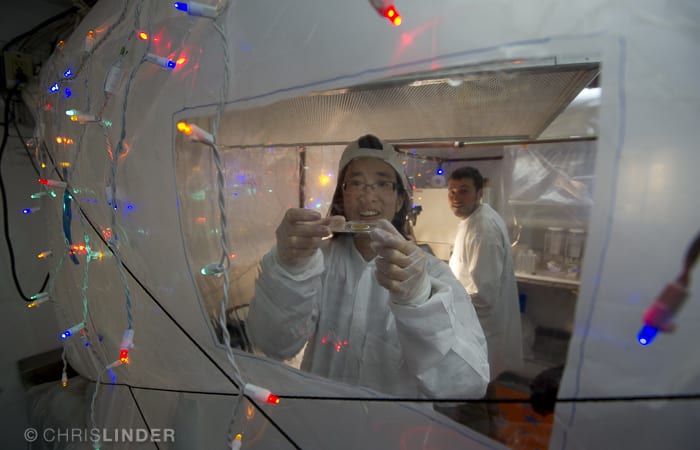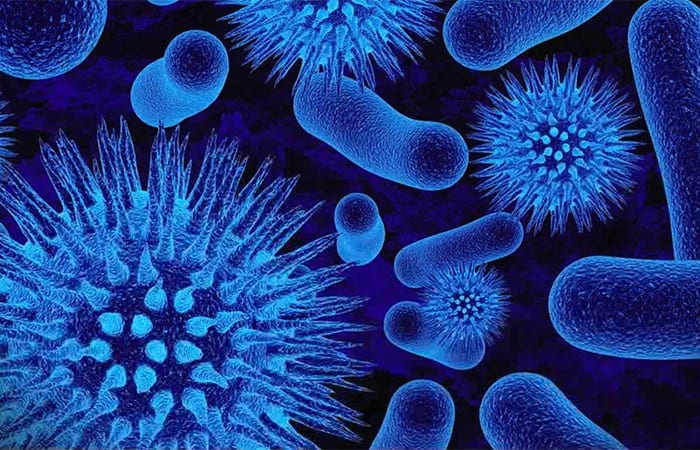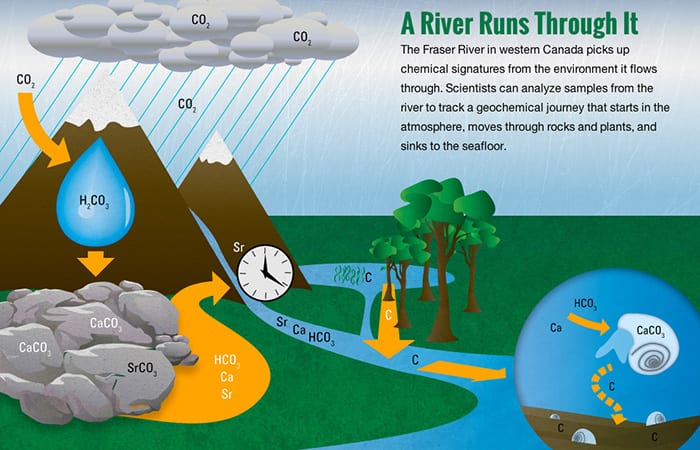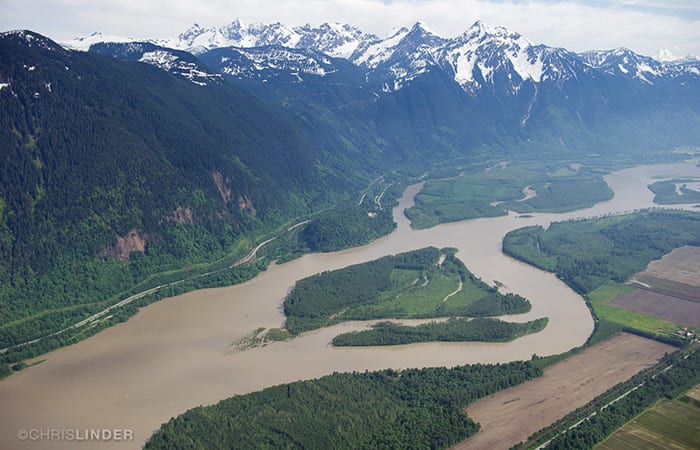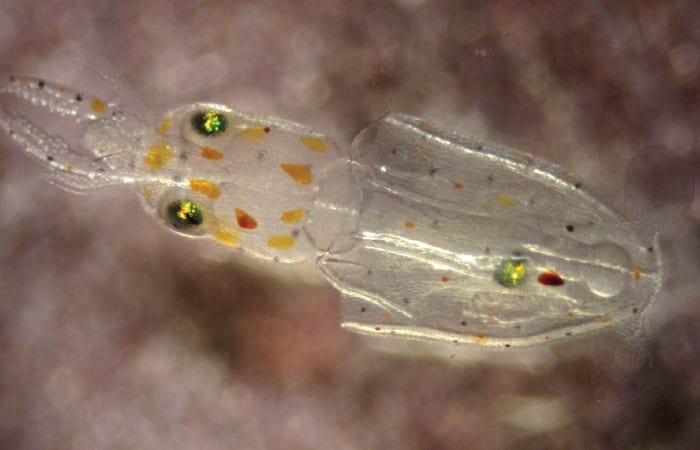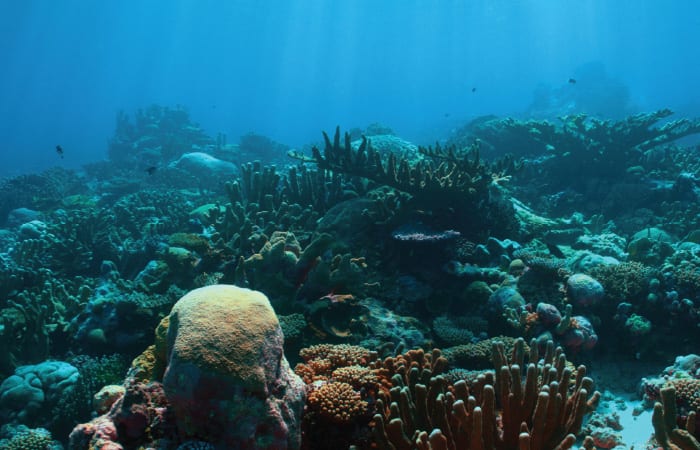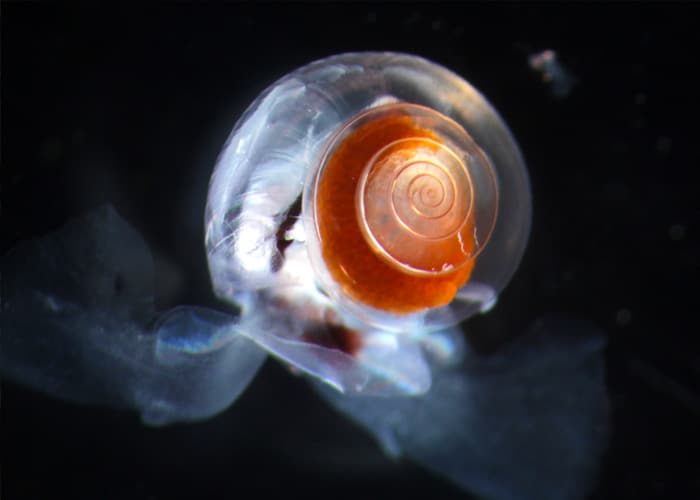Oceanus Online Archive
What Happened to Deepwater Horizon Oil?
Officials pumped a huge amount of chemicals into the deep ocean during the 2010 Deepwater Horizon oil spill in an effort to disperse the oil. A study published this week in the Proceedings of the National Academy of Sciences offers evidence that the dispersant may helped microbes break down the oil.
Read MoreNew Device Reveals What Ocean Microbes Do
Whether you’re a plant, animal, or even a microbe, you generally can’t conduct the business of living without exchanging oxygen. So just as you can figure out what’s going on…
Read MoreLet There Be Laser Light
WHOI scientists are developing new sensors using lasers to detect methane, carbon dioxide, and other critical environmental gases in the air and under the ocean.
Read MoreCan Animals Live Without Oxygen?
In 2010, a research team garnered headlines when it published evidence of finding the first animals living in oxygen-free conditions at the bottom of the sea. But a new study…
Read MoreA Faster Way to Better Reactions
Finding new chemical reactions to synthesize commercial products more efficiently is big business and a major source of innovation. A new study offers a way to make the search faster, cheaper, and greener.
Read MoreMinerals Made by Microbes
Some minerals actually don’t form without a little help from microscopic organisms, using chemical processes that scientists are only beginning to reveal.
Read MoreA Mighty Mysterious Molecule
What gives sea air its distinctive scent? A chemical compound called dimethylsulfide. In a new study, WHOI scientists show that the compound may also be used by marine microbes to communicate with one another.
Read MoreHow Did Earth Get Its Ocean?
Adam Sarafian overcame a learning disability and surmounted heights as a an All-American pole-vaulter—all before launching a scientific career that has now allowed him to hurtle across the universe and back through time to the period when Earth was still forming.
Read MoreEarth’s Riverine Bloodstream
Like blood in our arteries in our body, water in rivers carry chemical signals that can tell us a lot about how the entire Earth system operates.
Read MoreShort-circuiting the Biological Pump
The ocean has been sucking up the heat-trapping carbon dioxide (CO2) building up in our atmosphere—with a little help from tiny plankton. Like plants on land, these plankton convert CO2…
Read MoreCoral Crusader
Graduate student Hannah Barkley is on a mission to investigate how warming ocean temperatures, ocean acidification, and other impacts of climate change are affecting corals in an effort to find ways to preserve these vital ocean resources.
Read MoreHidden Battles on the Reefs
A new study led by WHOI scientists shows how changing ocean conditions can combine to intensify erosion of coral reefs.
Read MoreIs Ocean Acidification Affecting Squid?
The rise in carbon dioxide in the ocean from fossil-fuel burning may have insidious impacts on marine life.
Read MoreScallops Under Stress
Like other marine species, scallops face multiple climate change-related problems. Summer Student Fellow Cailan Sugano studied how scallops respond to acidification and lack of foodâand whether extra food can help them resist damage due to more acidic seawater.
Read MoreSwimming in Low-pH Seas
Researchers knew that squid raised in acidified water developed abnormal balance organs. To find out whether the young squid could still balance and swim normally, Summer Student Fellow Doriane Weiler mapped their movements.
Read MoreProteomics Reveals Ocean’s Inner Workings
In a new study, WHOI scientists have demonstrated how the emerging biomedical technique of measuring proteins—a field called proteomics—can be applied to the ocean to reveal the inner biochemical workings of microbial life and ocean ecosystems.
Read MoreUncovering the Ocean’s Biological Pump
Dan Ohnemus clearly remembers the highlight of his fourth-grade class in Bourne, Mass. He and his classmates made a satellite call to scientists at Woods Hole Oceanographic Institution (WHOI) who…
Read MoreDrug Discovery in the Ocean
WHOI scientists are investigating a wide range of unexplored microbes that produce chemicals with potential therapeutic value.
Read MoreA River Runs Through It
The geochemical journey of carbon from the atmosphere to the river.
Read MoreOf The River and Time
The Fraser River in western Canada is flowing with tiny time capsules. Inside them is a fascinating history of Earth’s landscape and climate. For the past four years, I have…
Read MoreCan Squid Abide Ocean’s Lower pH?
To most people, squid are calamari: delicious when fried. But to WHOI researchers Max Kaplan and Aran Mooney, squid are another reason to be concerned about ocean acidification.
Read MoreCorals’ Indispensable Bacterial Buddies
Coral reefs, like human beings, may be superorganisms that depend on communities of microbes living within and around them for their survival.
Read More